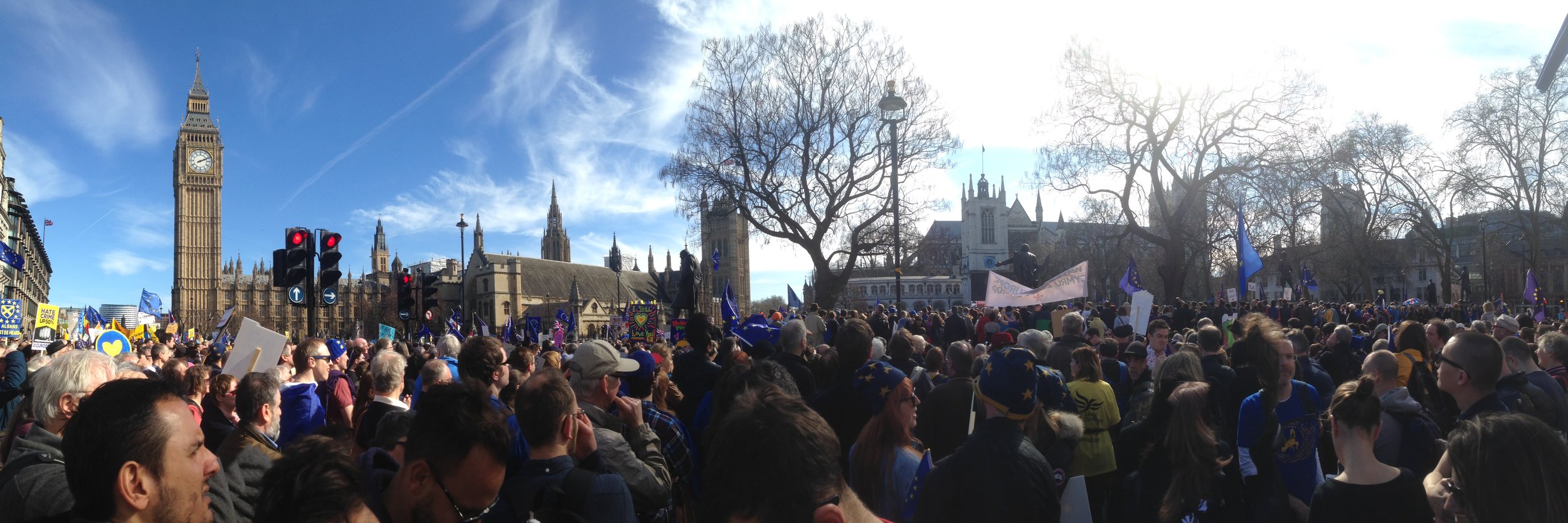Is this election the last opportunity to stop Brexit?
Once again an election looms over the country. This time, Brexit is the most pressing issue facing the nation. Despite it being three years since the referendum, it’s still unclear if and when Britain will actually leave the EU. Let alone what our relationship will be afterwards.
It has been said that an election is needed to resolve Brexit and after months of parliamentary deadlock I can see the logic in that. British politics has been paralyzed since parliament voted down Theresa May’s withdrawal agreement in January. No way forward has commanded a majority in the House of Commons, so it makes sense to send the decision back to the voters.
I can see the logic to this explanation of recent history, but I don’t believe it to be true. An election is not needed to resolve Brexit as parliament looked likely to pass Boris Johnson’s new withdrawal agreement in October. The reason why we’re having an election is that both Johnson and Jeremy Corbyn feel that winning a parliamentary majority is possible, and not because we need it to resolve an impasse on Brexit.
Is this the last chance to stop Brexit?
If parliament was about to pass a withdrawal bill, it follows that this election is the last chance to stop Brexit. A new parliament might vote to hold a second referendum or even stop Brexit entirely; the parliament elected in 2017 was never going to do either of these. Alternatively, a new parliament might pass Johnson’s withdrawal agreement, which means that the composition of this new parliament is essential for stopping Brexit.
For those of us who think that Brexit is a bad idea - sucking the oxygen out of politics and preventing action on crucial issues from NHS funding, to rising inequality and the collapsing natural environment - this election is crucial. The only way to stop Brexit is to return a parliament of Remainers. Tactical voting websites have been set up to tell the electorate exactly how to vote in their constituencies to achieve this; with various degrees of legitimacy.
I can see the logic of voting Labour in clear Labour/Tory marginals and Liberal Democrat in clear Lib Dem/Tory marginals. Especially for constituencies where the other party is as likely to win as Donald Trump is likely to voluntarily published his tax return. The problem with this approach is what should Remainers do in seats where it’s not a two-horse race or in Labour/Lib Dem marginals? I’ll tell you now that if the Lib Dems hold the balance of power in the next parliament it’s more than likely they will prop up a Tory government.
As much as I would like the Lib Dems to beat the Tories in rural South West constituencies where the last person to represent the seat who wasn’t a Tory won by opposing the Corn Laws, the Lib Dems will not win enough seas to be an influential player in government. To adapt a phase Remainers are fond of using, the Lib Dems will be a rule takers and not a rule makers. If Remainers vote Lib Dem in large numbers and deny Labour a majority they will be rewarded with a Tory hard-Brexit. Even in a coalition, the Lib Dems won’t be able to stop the Tories doing what they want on Brexit, just as they couldn’t stop austerity after the 2010 election.
The only way to stop Brexit is to return a Labour government
The only way to stop Brexit is return a Labour government who can deliver on their election commitment of a second referendum. Corbyn is clear: vote Labour and get a second referendum with the option for Remaining in the EU, and if that option is taken, no more Brexit. Gone forever. Into the dustbin of history.
My biggest concern about this election is that this won’t happen. The Remain voter has hardened since 2016 and hardened a lot in the last year. Now, Labour’s second referendum pledge is not enough to convince many Remainers. This is partly Corbyn’s fault, as his inaction on Brexit has allowed the debate to be filled with chancers who promise a lot that sounds good and press the emotional buttons of Remainers, but ultimately offer things that will never be delivered on. It’s Nick Clegg in 2010 all over again.
Labour’s impossible position
Corbyn has been put in an impossible position. One of the reasons why Labour are not seen as Remainy enough is that Labour need to hold onto some Leave voters to have any chance of winning this election. Brexit has divided the Labour coalition and any Labour leader would have found navigating this issue a serious challenge. Corbyn’s approach of trying to please both sides has not worked, but in the worlds of Harold Wilson: “If you cannot ride three horses at the same time, you should not be in the circus.”
Brexit has also cut the Tory coalition in half and Johnson’s plan to deal with this is to be the party of Leave, including pressing as many cultural war buttons as he can. This has risks and the Lib Dems are openly flirting with Tory voters through Jo Swinson saying she would use nuclear weapons. Johnson is hoping that pro-EU, pro-business, socially liberal Tories (we might call them Osborne Tories) will stick with his party out of fear of Corbyn’s plans to tax and spend.
Labour cannot respond to the Johnson’s grab for the leave vote - aimed at Northern and Midlands Labour seats and stereotypes of Labour voters such as Workington Man - by becoming the party of Remain. Partly this would leave open a Labour flank to the Tories, but mainly because Osborne Tories will never vote Labour, whether the party is led by Jeremy Corbyn or Tony Blair. They curse Thatcher in economically depressed former pit towns (and maybe Johnson can win over some of these people through a single-issue campaign on Brexit, but I have my doubts), but remember they still curse Blair in leafy rural Oxfordshire, as was so brilliantly parodied in Peep Show.
Vote Labour. Stop Brexit
Labour are caught in the middle of the Brexit divide, and I don’t believe that Yvette Cooper or Chuka Umunna could have steered the party between the Scylla of Leave and the Charybdis of Remain either. Due to this, the Tories currently look like they might win a majority (although frankly anything could happen in the next week).
If the Tories are still in power in January then we’ll get Brexit and not just Brexit, but a hard-Brexit, a Brexit that will make us cry out for the Norway Plus that was Labour’s position a few months ago. Even if we get a Tory minority government propped up Lib Dems or even a Tory/Lib Dem coalition then we’ll still get a hard Brexit. 2010-2015 shows how good the Lib Dem are at restraining the Tories in government.
This is the last chance to stop Brexit and the only way to do it is to vote Labour. Remainers need to get over the fact that Labour is not Remainy enough. I know it’s not fun to do the sensible thing, to grow up and stop throwing tantrums whenever you don’t get everything that you want, but voting Lib Dems will get you a Tory government and a hard-Brexit. Vote Labour and you get a second referendum. If you want to stop Brexit then vote Labour.
EU flag image created by Yanni Koutsomitis and used under creative commons.









